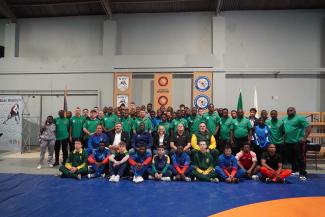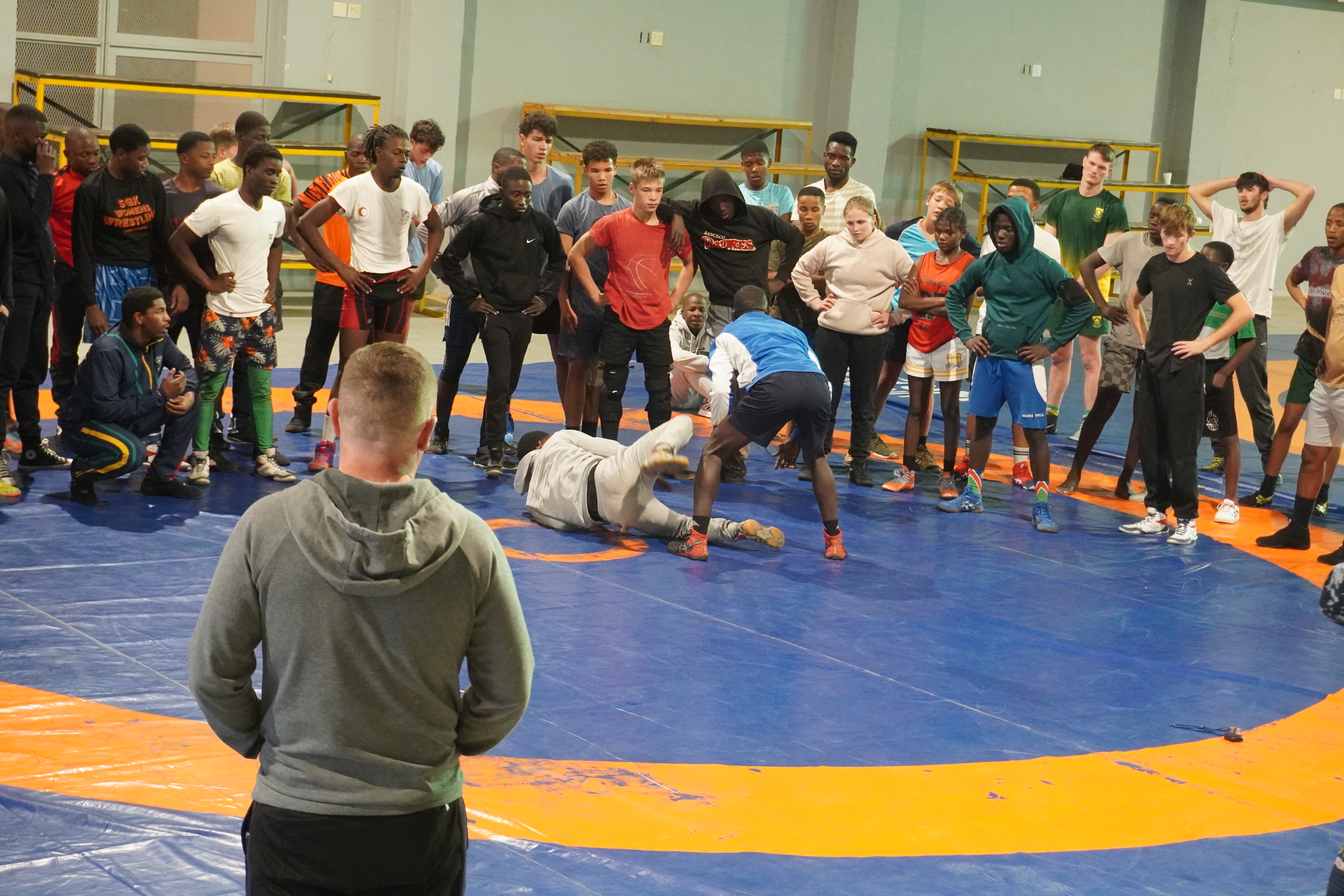Croatia organizes 'Learn, Wrestle, Use' in Porec
Wednesday, July 3, 2024 - 13:03 By United World Wrestling Press

POREC, Croatia (July 3, 2024)—The Croatian Wrestling Federation organized an international wrestling camp titled “Learn, Wrestle, Use.” The camp took place in the well-established wrestling center of sunny Poreč from April 1 to 6. It catered to girls and boys in the age categories of U13, U15, and U17. In addition to wrestling, participants learned the official languages of UWW—English and French.
The camp was run by Croatian experts – Hrvoje Šavuk, coach (U13 Boys Group), Eugen Jakovljević, coach of the Croatian U15 boys national team (U15 and U17 Boys Group) and coaches of women’s wrestling Croatian national team Nenad Žugaj and Ivan Lončarić (Girls Group).
Collectively, 240 children from four European countries, including Croatia, Italy, Slovakia, and Slovenia, participated in the camp.
 Participants of the 'Learn, Wrestle, Use' camp work on technique with the Croatian coastline in the background. (Photo: United World Wrestling)
Participants of the 'Learn, Wrestle, Use' camp work on technique with the Croatian coastline in the background. (Photo: United World Wrestling)
The significant potential of this camp was acknowledged by the UWW, and UWW Development Officer Vincent Aka was present, from whom both the leaders of groups and the young coaches learned a lot. Namely, the camp was attended by 22 young female and male coaches, in addition to the leader, who received valuable education at this camp, primarily from Vincent Aka, who greatly contributed to the quality of this camp with his knowledge and commitment. It was the opportunity to present United World Wrestling Academy to the coaches and invite them to use it to the fullest because all the educational resources are available and free for everyone (coaches, referees, athletes, administration)
Apart from wrestling and language learning sessions, the camp also featured organized swimming lessons, sea swimming, evening recreational activities and time to watch the European qualifying tournament for the Olympic Games in Paris 2024.
Wrestling training took place in three groups on indoor and outdoor courts. Learning languages was taught in four groups - three English groups and one French group. The atmosphere during the entire camp was excellent, as was the food, which has long been recognized by the wrestlers who come here in large numbers for sport preparations.
“I had a great time here and I would like to come back next year!”, “If only it had lasted longer!”, “Everything was great, especially the tuna steak.” and “It's painful, but there's no fun without pain.” are just some of the comments collected from young female and male wrestlers who attended the first camp in a series called “Learn, wrestle, use”.



Share your thoughts.
Comments